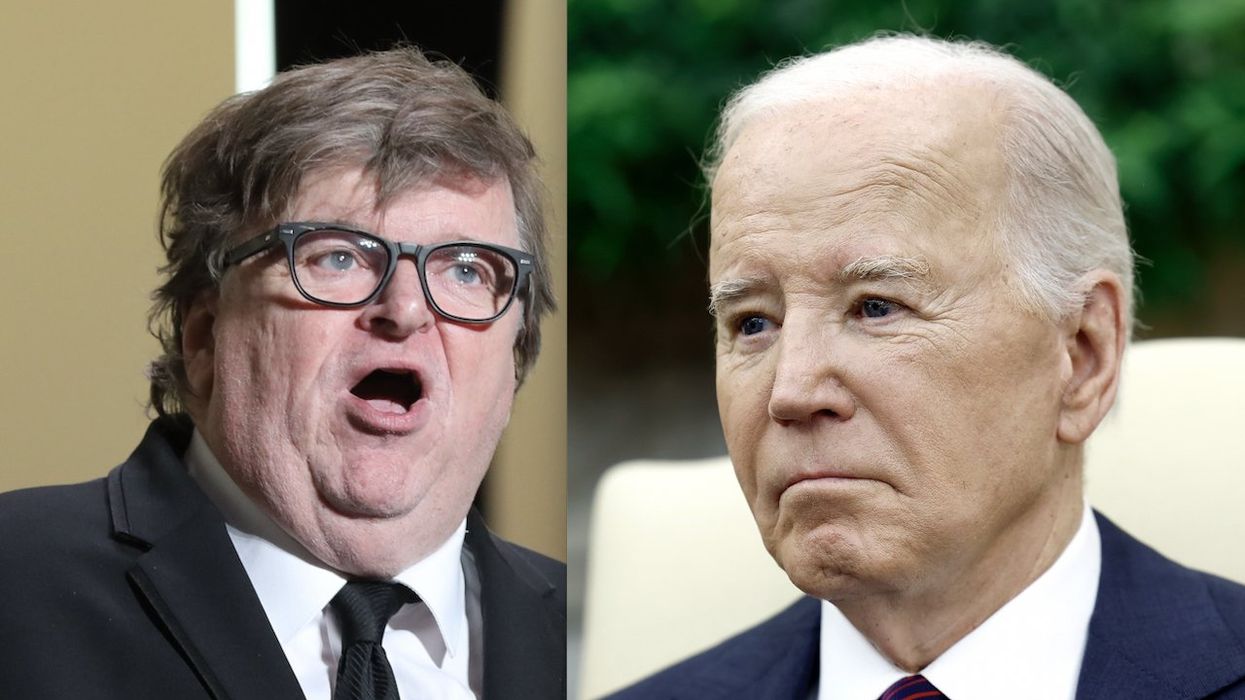President Barack Obama once said that economic growth is not sustainable and that to protect the environment we need a steady state economy.
This contrasts with a statement he made in his reelection campaign that “there is no conflict between growing the economy and protecting the environment.”
Is there a fundamental conflict between economic growth and environmental protection, as many environmentalists believe? Although economic growth sometimes conflicts with protecting the environment, some actions that improve the environment also enhance economic growth, and economic growth may make it easier to protect the environment.
 Protecting the environment and increasing economic opportunities are linked. AFP PHOTO/Frederic J. Brown
Protecting the environment and increasing economic opportunities are linked. AFP PHOTO/Frederic J. Brown
Some of the worst environmental destruction occurs in places with extensive poverty. In poor countries, rivers are often polluted with human waste, erosion runs rampant because every acre of land is planted in crops, and the air is severely polluted due to burning of wood or dung for cooking and heat.
With higher incomes resulting from economic growth, people can afford to produce the goods and services they consume with less pollution. For example, as communities get wealthier they build or upgrade sewage treatment plants, resulting in cleaner rivers and streams. People substitute cleaner fuels like oil and natural gas for wood. Improvements in farming techniques make it possible to grow more food on less land, resulting in grassland and forests replacing cultivated hillsides, providing more habitat for wildlife, including endangered species.
Early stages of economic growth result in industrialization and urbanization, which tends to increase air and water pollution. Eventually, when standards of living exceed a certain level, a change occurs in how economic growth affects the environment. Further growth in middle and high income countries often leads to the use of improved production technology that results in less air and water pollution. Wealthier people can afford to buy automobiles that burn fuel more efficiently, emitting less pollution. As incomes rise, the public demands that government and businesses set aside parks and buffer zones to conserve biodiversity and protect environmentally sensitive areas, such as wetlands.
The relentless pursuit of more and more material goods and services for everyone is not sustainable. A more appropriate goal is economic progress, which is not the same thing as producing more every year. Economic progress does not necessarily mean bigger houses, bigger cars, and more goods and services being produced. It could also mean more efficient use of living space, more energy efficient cars, and goods that last longer, reducing waste.
[sharequote align="center"]Preserving a river adds nothing to GDP, but polluting it and then cleaning it up does.[/sharequote]
Some environmentalists have argued that conventional measures of economic growth, such as gross domestic product, tend to leave out environmental amenities. Preserving a river adds nothing to GDP, but polluting it and then cleaning it up does. A better measure of economic growth should account for changes in environmental quality, so that cleaner air or water would be counted as an addition to economic growth.
Whether economic growth results in environmental improvement depends partly on whether it is accompanied by economic freedom. In a free market economy with private property rights, as their incomes rise, people tend to place more value on environmental amenities relative to material goods. If they have property rights, landowners can express their preferences for clean air, clean water, wildlife habitat, or beautiful views. In such a context even business managers who do not value preserving the environment will have an incentive to conserve it if enough consumers and investors value it highly.
By contrast, government regulation or control of resources often has unintended consequences, including environmental degradation. Government bureaucrats who monitor and enforce compliance with environmental regulations pursue their own interests, even when doing so makes others worse off without improving environmental quality. Government programs, such as subsidies for alternative energy, are very difficult to repeal, even if they turn out to harm the environment more than help it. Politically powerful interest groups, who benefit from subsidies, lobby to keep the subsidies, regardless of their long term consequences.
Some in the environmental movement advocate reducing the number of people in the world and lowering their standards of living to restore the environment to some ideal state. The earth, however, was created with abundant resources for humans to manage for the benefit of themselves and future generations. The Cornwall Declaration on Environmental Stewardship says that we should view “human stewardship that unlocks the potential in creation for all the earth’s inhabitants as good.” The goal should be to develop and use resources to meet present needs while conserving enough to meet the needs of future generations.
Damage to the environment is often the result of wasteful production or consumption processes. Well-defined property rights give people an incentive to carefully manage resources and minimize waste. Improvements in technology make it possible to conserve resources by improving the efficiency of production or by reducing the cost of recycling the byproducts of production or consumption. Thus economic growth and environmental improvement can be allies and need not be enemies.
Dr. Tracy C. Miller is an associate professor of economics at Grove City College, a fellow of the Cornwall Alliance for the Stewardship of Creation and fellow for economic theory and policy with The Center for Vision & Values.
–
TheBlaze contributor channel supports an open discourse on a range of views. The opinions expressed in this channel are solely those of each individual author.


 Protecting the environment and increasing economic opportunities are linked. AFP PHOTO/Frederic J. Brown
Protecting the environment and increasing economic opportunities are linked. AFP PHOTO/Frederic J. Brown


